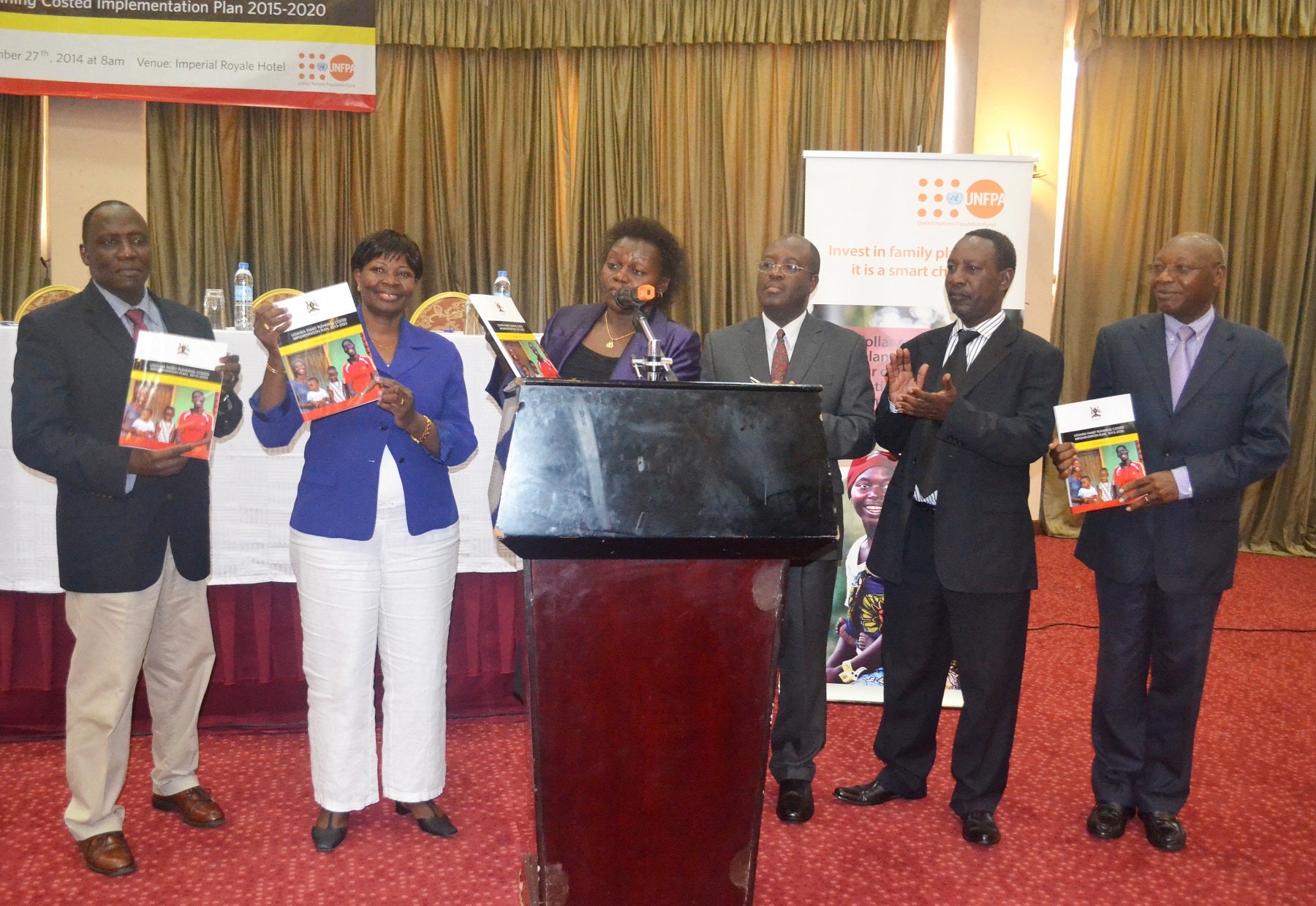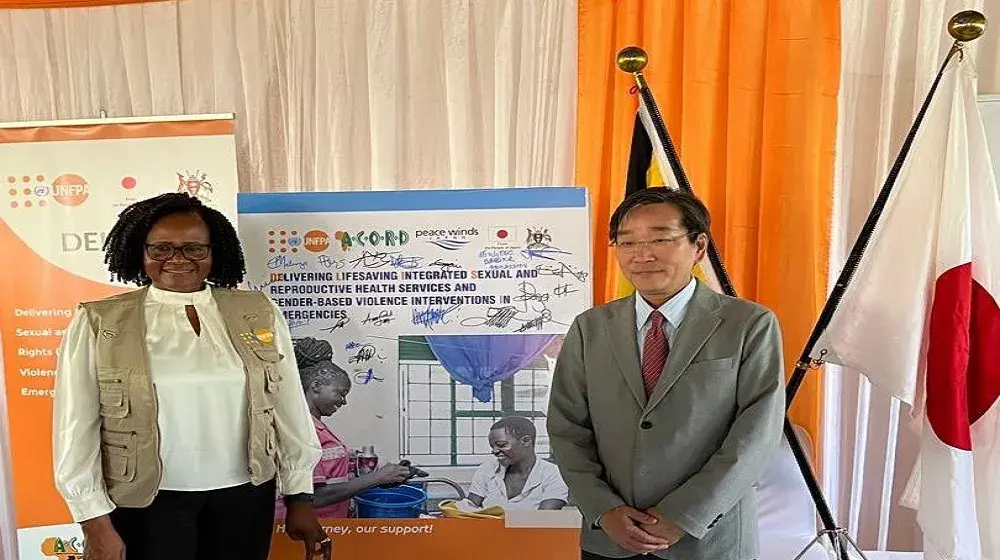The Government of Uganda has committed to reduce the unmet need for family planning from 34 per cent to 10 per cent and to increase the modern contraceptive prevalence rate from 26 per cent to 50 per cent by the year 2020.
On Thursday 27th November 2014 the Ministry of Health, with support from UNFPA, USAID, the UK Government and other partners launched a plan to enable Uganda to reach these goals.
The ‘Uganda Family Planning Costed Implementation Plan 2015-2020' (FP CIP) is the overarching document that provides national guidance for achieving the national family planning goals. It contains details on programme activities and the costs associated, providing clear information on the resources the country must raise domestically and from partners. Uganda is the 15th country in Africa to develop such a costed implementation plan.
"Ambitious goals require equally ambitious action plans by all stakeholders," said State Minister for Primary Health Care Hon. Sara Opendi as she officially launched the Costed Implementation Plan. In her speech, she emphasized that hard work and leadership are needed to reach the goals of the CIP.
The division of labour was highlighted several times during the launch of the plan. Local leaders, religious leaders, development partners, Civil Society Organisations and satisfied users in the community were all encouraged to play their role in increasing the uptake of family planning.
UNFPA's Deputy Representative Ms. Cecile Compaore congratulated the Ministry of Health on the launch of the CIP and recommended that they continue to provide leadership. "Let us take advantage of the leadership demonstrated by the Ministry of Health and the commitment shown by the government to coordinate partners and stakeholders to increase access to family planning and hold ourselves accountable to the women and girls in need," she said.
The CIP has a total budget of UGX652 billion ($235 million). The largest part of the budget, 49 per cent, will go to commodity security, to ensure everyone who chooses to use family planning has access to a method of their choice.

From L to R: USAID Family Planning and Reproductive Health Advisor Dr. James Tanu Duworko, UNFPA Deputy Representative Ms. Cecile Compaore, State Minister for Primary Health Care Hon. Sara Opendi; Ministry of Health Director Clinical and Community Health Dr. Anthony Mbonye; Ministry of Health Acting Assistant Commissioner Health Services Dr. Collins Tusingwire and Partners in Population and Development Executive Director Mr. Jotham Musinguzi at the CIP launch.




